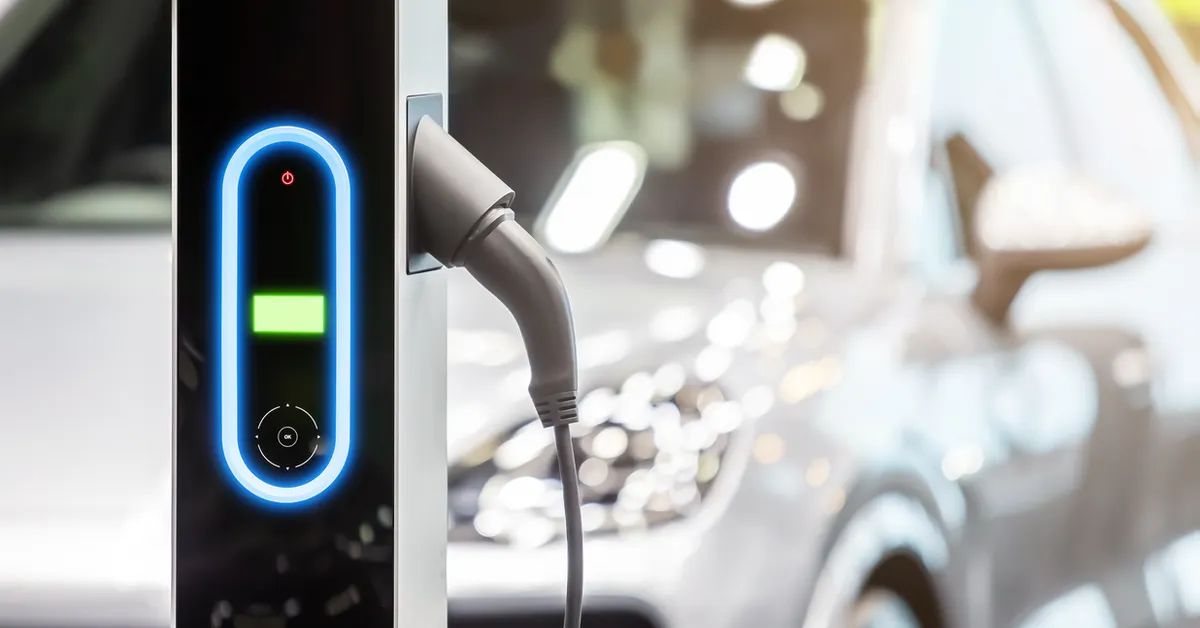
Here’s everything you should know before making the switch to electric vehicles. And when you do, EMR Vehicle Recycling has over 70 years’ experience in helping vehicle owners responsibly recycle their old cars – and get the best price for it – so you can make some money to put towards your new motor.
The EV surge
The sale of EVs has shifted into high gear. In 2024, global EV sales cruised past 17 million - accounting for 20% of all vehicles sold. With the UK government pledging a ban on the sale of new ICE and hybrid vehicles from 2035, those numbers are only going to go up as infrastructure and driver behaviours adapt to an electrified world.
With this increasing demand, automotive manufacturers are plugging more EV options into their lineups than ever before. It’s not just Tesla dominating the industry anymore. From the budget-friendly MG4 to the luxury-performance Porsche Taycan, nearly every auto brand now offers at least one EV model.
But just because everyone’s doing it, doesn’t mean the electric life is for you.
The benefits of making the switch to electric
- Tax benefits — New EVs, registered after April 1st 2025, only pay £10 road tax for the first year, although it does bump up to £195 after that.
- Government incentive — Millions of pounds have been committed to both improving at-home charging across the UK and making the energy costs more affordable.
- Petrol savings — Say goodbye to painful petrol prices. With oil costs continuing to climb, EVs offer a more stable and affordable alternative. Charging your vehicle typically costs less than filling a tank.
- Growing range — Today’s EVs can go the distance. Most new models offer 250-350 miles per charge, right in line with the average ICE vehicle’s range for a full tank. And with charging infrastructure expanding across the UK, range anxiety is quickly becoming a thing of the past.
- Lower operating cost — EVs have fewer moving parts, which means less can go wrong. You won’t need oil changes, spark plug replacements or transmission fluid. Regular maintenance is minimal – for the most part, you’ll just need to keep an eye on brakes, tyres, suspension, washer fluid and the occasional light bulb.
- Urban driving perks — For the city dwellers, EVs are exempt from the UK’s congestion charges and ULEZ (Ultra Low Emission Zone) fees, which can cost drivers in places like Greater London up to £12.50 per day. That’s a saving worth noting if you drive through city centres frequently.
- Cleaner, greener driving — Perhaps the biggest reason; EVs produce zero tailpipe emissions. You’re not adding to the damage to the planet that comes from extracting oil to fuel your engine or the greenhouse gases that come out as you drive. The biggest carbon cost from EVs happens in production – something that EMR is working with manufacturers to reduce, so that we can all accelerate along the road to net-zero.
Things to consider before going fully electric
Insurance costs
One of the biggest surprises for many first-time EV buyers is insurance. Insurance premiums for EVs are often higher than those for petrol, diesel or even hybrid cars. Why? EV battery replacements are expensive, and they usually are damaged from accidents. There are also fewer technicians qualified to work on them.
Tyre life is shorter
Many new EV owners are taken back by how often tyres need replacing. With the battery’s weight, EVs are heavier than their petrol or diesel counterparts, causing tires to wear out up to 20% faster. While EV-specific tyres are available and designed to handle the extra weight and torque, they typically last around 30,000 to 40,000 miles. However, they often come at a premium price and with fewer options on the market.
Upgrading home charging has a cost
While a standard Level 1 charger (using a regular household outlet) can charge your EV, a Level 2 home charger, which typically delivers around 7kW of power, is up to three times faster making it a more efficient option. Installation costs approximately £800 to £1,200.
There are also high capacity 22kW chargers available; however, they can cost over £3,000, depending on your home’s electrical system and installation requirements.
The good news? The government is offering £350 grants to help reduce the cost of home charger installation. You can find out more about eligibility and how to apply here.
Ready to make the switch?
Making the switch to an EV is a personal decision, but it’s one that more and more drivers are embracing - for the savings and sustainability. If you’re considering plugging into the EV lifestyle, take a moment to weigh up the benefits, consider if an EV would fit your lifestyle and explore the growing number of models available.
Whether you go ICE or EV for your next vehicle, you’ll need to decide what to do with your old one. This is where EMR Vehicle Recycling has been helping car owners, like you, for over 70 years.
Get an instant quote and get some extra cash to help with the down payment on your next ride. It’s a smart move for your bank account and the environment. Curious how much your car could be worth?

